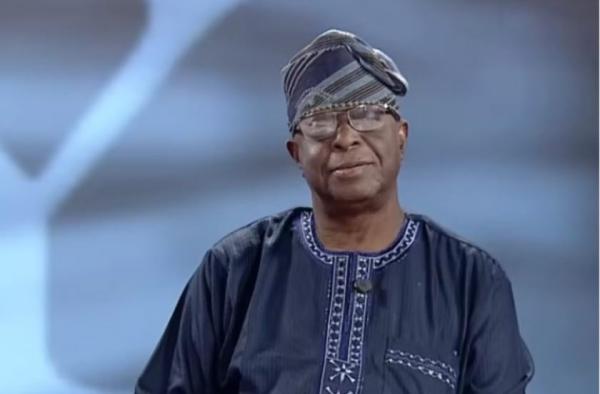
Yakubu Dogara, Speaker
SPEAKER of the House of Representatives, Yakubu Dogara, yesterday, accused the Federal Government of not taking steps to address agitations of oil producing communities in the country. Yakubu Dogara Yakubu Dogara The Speaker also
lamented that the National Assembly had written to the Presidency to submit its proposed reforms on the oil and gas sector about three times, lamenting that the Presidency was yet to do anything in that direction.
Dogara, who stated this during the National Stakeholders Summit on Petroleum Industry Reforms organised by the House Committee on Petroleum in Abuja, said the legislature was determined to draft a law for the industry that will be in the best interest of Nigerians. He noted that Nigeria was one of the richest petroleum regions of the world, but had not been able to effectively maximize its immense oil and gas potentialities and the revenue accruing from them. Importance of PIB Harping on the importance of the Petroleum Industry Bill, PIB, for economic recovery of the nation, Dogara said: “We are not unaware of the several failed attempts at redeeming the petroleum industry by our predecessors.
“The Petroleum Industry Bill has been down a long, tortuous, and chequered road. Most of us have been co-travellers in the journey to pass the bill into law, and have the requisite experience to avoid any pitfalls ahead, hence this resolve to seek proper consultations with you and build confidence among us. “The need to make consensus and lend a voice to long suppressed agitations in the drafting and consideration of petroleum industry bills informed our decision to organize this stakeholders summit.
“We are optimistic that this approach will provide the crucial platform to enable us cross-pollinate ideas and ventilate our positions on certain contentious issues, regardless of how vexed they may be. You can be rest assured that our work at the National Assembly is to do your good intention. “Nigeria is one of the richest petroleum regions of the world. Paradoxically, it has never been able to maximize effectively its immense oil and gas potentialities and the revenue accruing from it. “The downstream operates in a state of almost continuous malfunction, and, for years, has been characterized by comatose refineries and an inefficient downstream.
Nigeria’s oil resources skewed to enrich elite “It operates under an inadequate legal framework, with an inefficient and poorly maintained pipeline network and depot system. The result is that Nigeria is both one of the world’s largest producers of crude oil, and one of the world’s leading importers of petroleum products, a dependency that has enriched the elite at the expense of the increasingly impoverished masses. “The downstream runs on a system of subsidies until recently and uniform pricing which has proved ineffective, in addition to being administered in a very opaque way. Shortages and inadequate supply have characterized the Nigerian downstream for over two decades and can be described as an example of system failure.
“The upstream has not fared better either. Pipeline vandalism, large-scale environmental degradation, and the world’s highest levels of crude oil theft have been constant for several years. “Decades after the advent of Nigeria’s petroleum industry, problems which led to host community agitation remain unaddressed and highly politicized, and the question of the extent to which revenues from the industry should be shared among the three tiers of government and the people remain, as do the content and limits of corporate social responsibility. “These are all crucial issues that should be addressed to guarantee and ensure a stable polity in Nigeria. “These examples represent just a few of the present problems of Nigeria’s petroleum industry, and are reflective of an industry that is in critical need of total restructuring, which can only be commenced through the enactment of laws that provide the legal framework that will promote the emergence of an optimal petroleum industry.
“The existing laws are outdated, anachronistic, and out-of-sync with international best practices and current technological advances for decades, with the primary laws being the Petroleum Act of 1969, and the Petroleum Profits Tax Act, 1958.” No meaningful laws for reforms Dogara regretted that there had been no meaningful laws for reforms in the oil and gas sector of the country.
He said: “Legal reform, which is the bedrock of meaningful restructuring of the industry, is thus a dire necessity. Unfortunately, it has not happened, even though activities towards reform have been taking place since year 2000. “For reasons which will be made apparent in the course of this summit, these activities have ended up in failure, evidenced by the non-enactment of either the Petroleum Industry Bills of 2008 and 2012, which were before the 6th and 7th National Assembly respectively. “In the meantime, the situation in the petroleum industry and Nigeria’s sustainable development, has progressively worsened. “I have on at least three different occasions, publicly requested the executive to, as a matter of urgency, send an Executive Bill on its intended reforms in the petroleum sector. We had hoped to avoid the situation in the past two Assemblies (6th and 7th) where the PIB was sent to the National Assembly very late in its tenure, thereby guaranteeing failure to pass the bills.
“In the absence of an executive bill on the matter, two private members’ bills have now been introduced. We urge participants to familiarize themselves with these bills and make necessary inputs at the public hearing stage of the bills. “We also hope that this summit will craft its own version of the PIB for the attention of the National Assembly, taking into consideration all the existing drafts and also the pending bills. In this regard, therefore, I wish to correct the erroneous impression in the media that there is a pending executive bill on PIB on the floor of the National Assembly.
“Over the years, Nigeria has performed much worse than sub-Saharan Africa as a whole and much worse than other regions of the developing world, in terms of human development indicators, to the extent that it is regarded as a foster child for ‘how not to run a petroleum industry’. Reps to revisit process of petroleum industry reform “The intention of the House of Representatives is to revisit the process of petroleum industry reform, and to work towards the successful enactment of laws that will regulate the Nigerian petroleum industry, in accordance with the rule of law, good governance, and due process, for the sustainable development of Nigerians and the total advancement of the Federal Republic of Nigeria.
“It is our conviction that the reform of the petroleum industry is a vital necessity, if Nigeria is to realize its God-given potential. While not downplaying the critical and inescapable need for diversification, for a country that depends largely on revenues from petroleum industry, there is no alternative to reform.” The speaker said the National Assembly had a commitment to bequeathing to Nigerians very robust laws that would seamlessly impact on the people in the most positive way. “We have resolved to remain proactive and to pass new laws for petroleum reforms. We are poised to completely overhaul and transform the Nigerian petroleum industry, particularly the institutional framework which is believed to be the key to any meaningful reform in the sector,” Dogara said. Senate slams FG over delay in PIB Meanwhile, the Senate has expressed displeasure with the executive arm of government over its delay in releasing the Petroleum Industrial Bill to the Senate for deliberation and approval.
The legislative body disclosed this in Rivers State when a Senate delegation, led by Senator Barau Jibrin, visited oil facilities operated by Belemaoil Producing Limited at Robert-kiri, Kula Kingdom in Akuku-Toru Local Government Area of the state, yesterday. Senator Barau Jibrin said the 8th Assembly had initiated its own PIB, which he said the Senate was working with as executive had not submitted any. Jibrin expressed worries over the delay by the executive to submit its plans on the petroleum bill to the Senate, adding that it was a setback to the industry.
Jibrin also commended the Belemaoil on its efforts in creating employments for youths in its area of operation, stressing that the Senate would support the company’s vision.






















